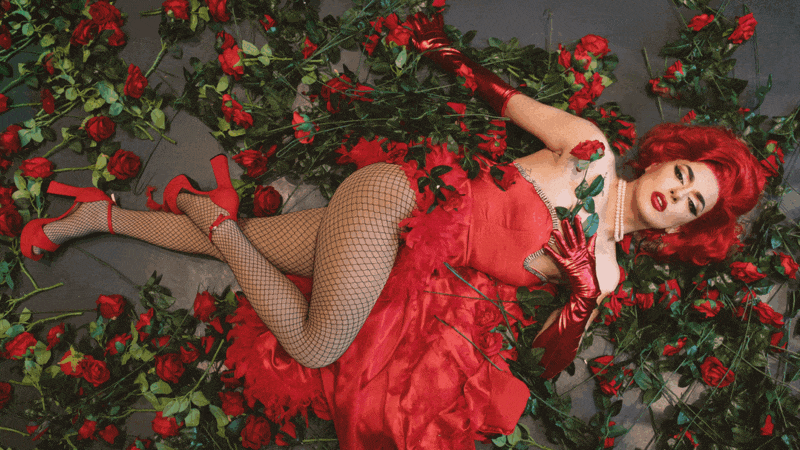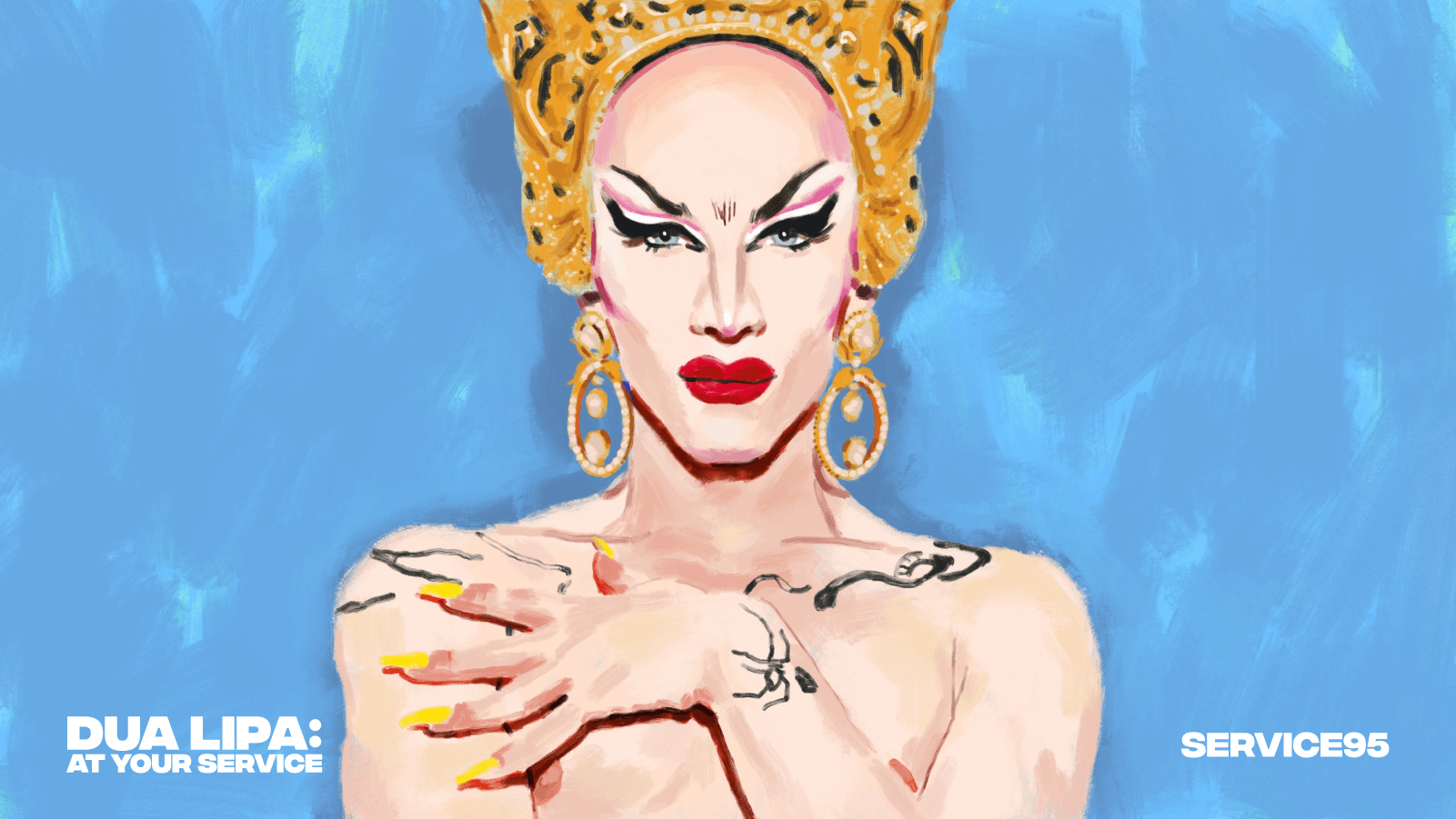The LGBTQIA+ Activists Creating Safe Spaces For The Queer Community In Kosovo
This June, hundreds took to the streets of Prishtina, Kosovo’s capital, to celebrate the seventh consecutive Pride parade under the slogan: I Love You As You Are. For many, the march was a symbol of hope and progress; further proof that the tide is continuing to shift towards public acceptance and celebration of queer culture.
This change is largely driven by Kosovo’s famously young population – 55% is under 30. Since Kosovo’s declaration of independence in 2008, its constitution has recognised sexual orientation as a protected class from discrimination. And LGBTQIA+ activists have become more vocal in demanding equality through other legislation. In 2015, the Law on Protection from Discrimination was amended to include gender identity as a protected class.
Yet LGBTQIA+ rights continue to face serious social and legal challenges. In the past few years, Kosovo’s Parliament has twice failed to adopt the country’s Civil Code, largely rejecting it due to an article that would pave the way for legalising same-sex unions. Transgender individuals do not have access to gender-affirming care within the healthcare system. Social conservatism and homophobia remain widespread.
Nevertheless, an inspirational community of people is continuing to fight for a safer, more inclusive society for all. Service95 meets four incredible LGBTQIA+ activists in Prishtina to discuss the concept of ‘A Safe Space’ – what the idea means to them, and how vital it is to protect it.
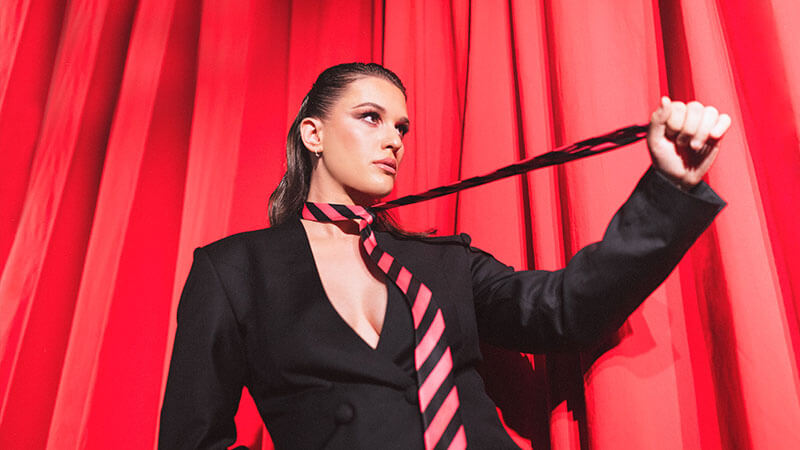
Rina Krasniqi (she/her) – actor & artist, 26
In 2021, Rina Krasniqi had her international breakthrough with her leading role in The Albanian Virgin, which premiered at the Warsaw Film Festival. In summer 2022, the film won all three main prizes at the PriFilmFest, the Prishtina International Film Festival. Along with Best Film, Krasniqi won both Best Male Performance and Best Female Performance.
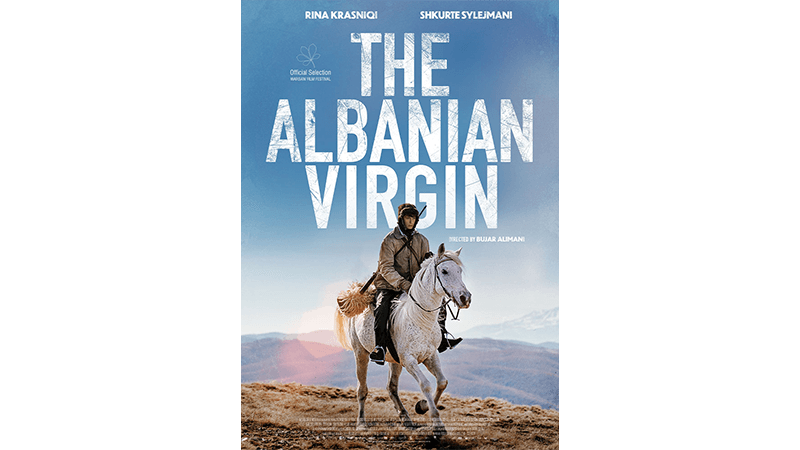
The Albanian Virgin illustrates the life of a ‘sworn virgin’ – a centuries-old Albanian tradition through which some women would take a vow of celibacy and live as men in otherwise patriarchal societies that subjugated women. Krasniqi’s character Luana decides to become a man in order to avoid an arranged marriage.
Krasniqi’s double award win sparked both criticism and praise in Prishtina – mirroring the discussion already taking place across the industry worldwide as to whether to drop gendered categories in order to create a more inclusive approach and recognise non-binary artists.
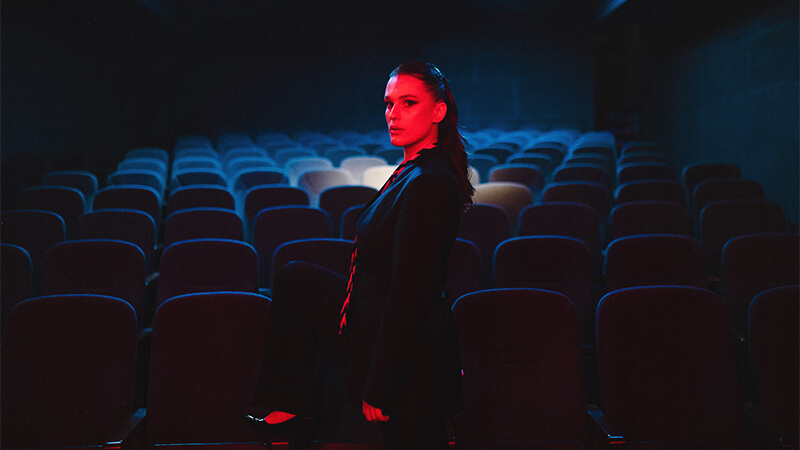
Krasniqi is proud to be part of the change. “When you are a pioneer, you’re going to get the heat,” she says, referring to some of the backlash. “However, it’s also beautiful because you’re creating room for new things to come. I think that’s what it contributed to here [in Kosovo]. People saw that queer people can work and be successful and be true to themselves.”
For Krasniqi, The Albanian Virgin (a German-Belgian-Albanian co-production) was special for personal as well as professional reasons. She met her partner on set, with whom she now lives between Prishtina and Brussels. She believes it also helped bring attention to our shared humanity. “We shouldn’t forget that beyond being queer, we are human,” she says. “And we should remember that our safe space is as a human being, from childhood till now.”
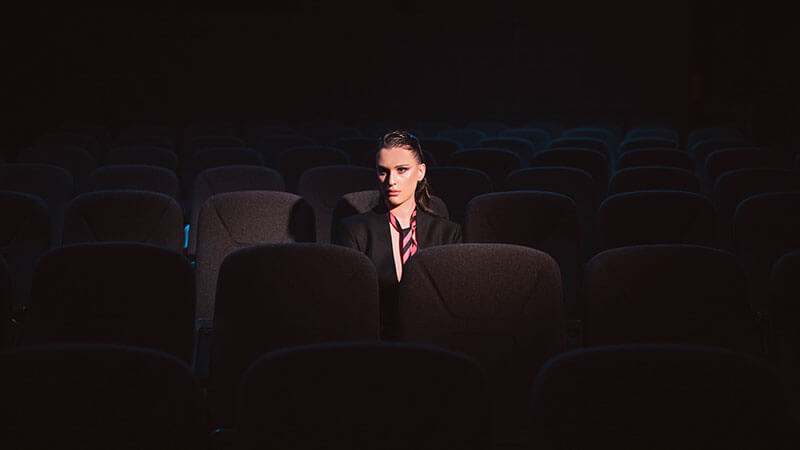
Krasniqi first took the stage as a four-year-old on a children’s TV show with her sister, where they sang the song Daba Daba. It became a children’s anthem for her generation. Since then, she has continued exploring the arts. She’s a singer, multi-instrumentalist (piano, guitar and percussion), theatrical performer and now award-winning film actor. Performing – wherever that may be – has always been her safe space.
“Through acting you are able to create different characters, with different identities and biographies. That has been the greatest freedom for me,” she says. “It has been my comfort zone.”
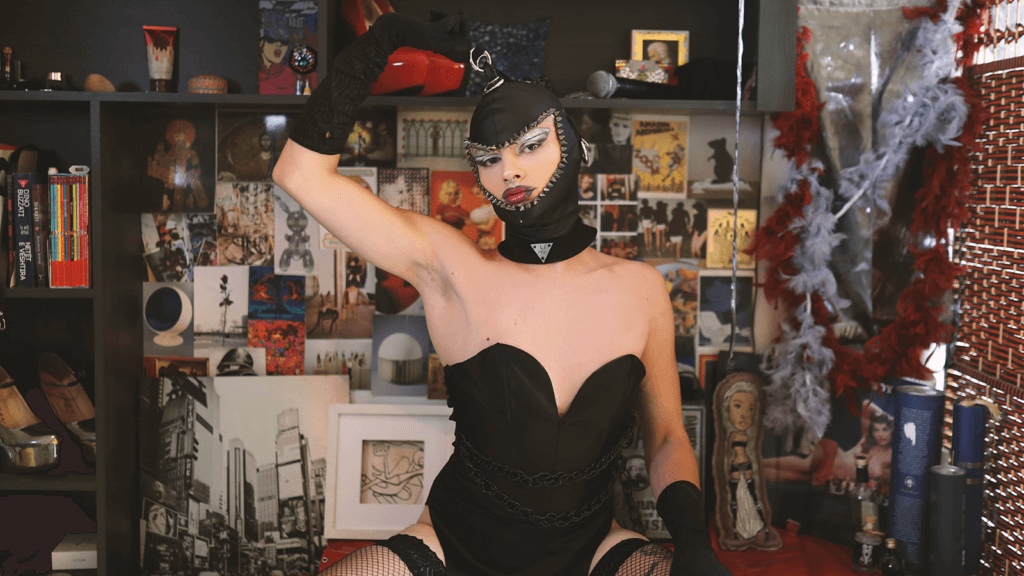
Edon Shileku (he/him) – actor & YouTuber, 25
In the run-up to Pride 2023, Edon Shileku’s flat became a professional studio. There, he’s been recording his recently launched YouTube show, Me men’ ska (There’s Nothing Like Havin’ Brains) for the Prishtina-based online media outlet Nacionale.
The show opens with a disclaimer: “Not recommended for close-minded persons, unless you are open to opening it up.” His show features intimate conversations with a diverse group of prominent Kosovars from the world of culture – actors, musicians, fashion designers, poets and more. Shileku uses his guests’ professional experiences as an entry point to discuss larger societal issues, such as problems in the education system, mental health, and issues of access and exploitation in the local arts scene. One of his aims is to platform queer voices in public discussion.
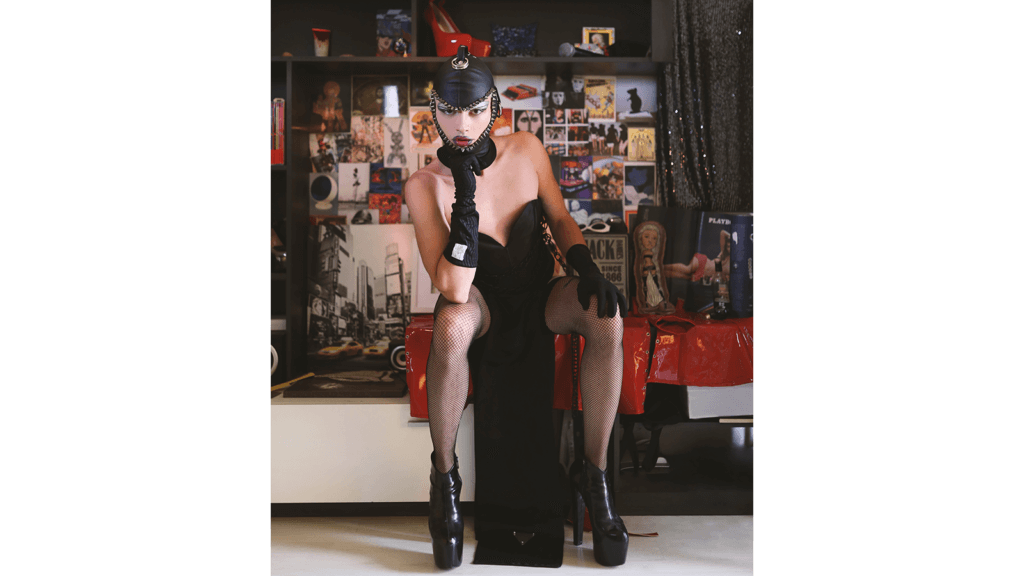
An actor in a number of independent theatrical productions, Shileku, who grew up in Prishtina, is no stranger to Kosovo’s cultural scene. But his name blew up this year when he was cast on Big Brother VIP Kosova, the first local edition of the international reality show. Charismatic and unabashed about his bisexuality and his drag persona Victoria Owns, Shileku’s outspokenness broke down cultural barriers and helped introduce LGBTQIA+ representation into Kosovo’s mainstream culture.
“People from the community are not given the opportunity to be present on TV, so that others can get more informed,” he says. “They remain more within their own community, spaces they consider ‘safe spaces’.”
The flat where he produces his YouTube show is one of these safe spaces. “When I’m totally in the moment and not thinking of my behaviour, of the way I talk, the way I act, the way I move – that’s when I feel safe,” he says.
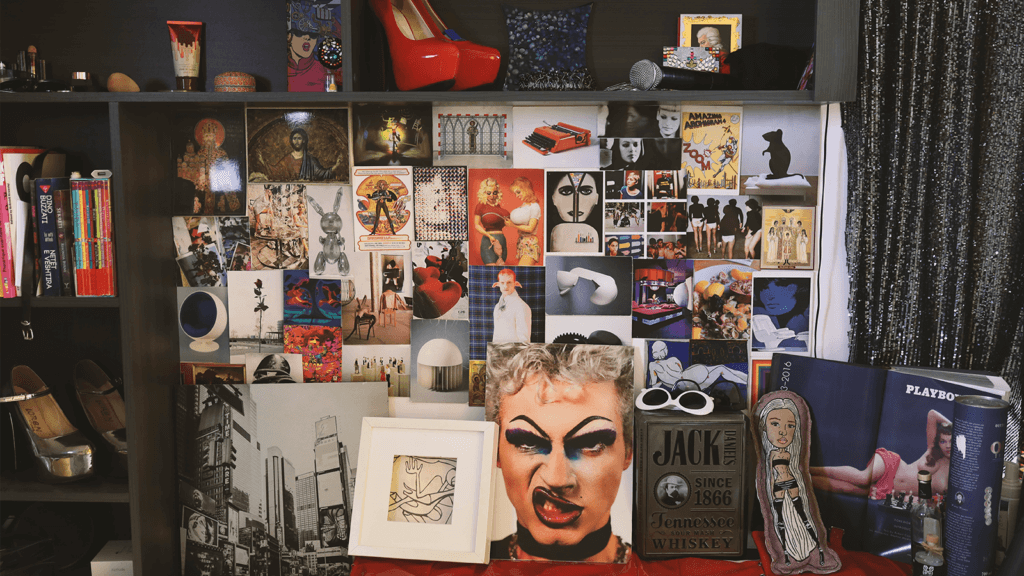
But Shileku can’t take his safety for granted. Since appearing on Big Brother, he’s been receiving threats in public and online. Such experiences trigger memories of being taunted as a child for being ‘too feminine’. Recently, he found out that his 10-year-old brother was being bullied at school for being related to Shileku. “I went back to all my childhood traumas,” he says. “It was very painful.”
One way he deals with this stress is by tearing up the stage performing as Victoria Owns at queer events in Prishtina and in neighbouring countries. “It helps me as a form of therapy,” says Shileku, whose dream is to tour worldwide. “I use the stage to be fearless and pour everything out. I love myself just the way I am.”
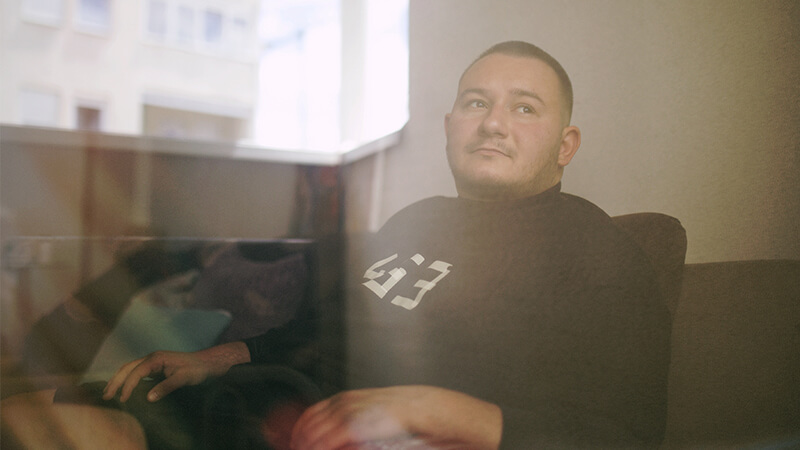
Lendi Mustafa (he/him) – bar owner & activist, 26
“Nothing made me happier than when my mother started calling me ‘my son’,” says Lendi Mustafa, his eyes shining with pride and grief. When Mustafa’s mother passed away in April this year, he lost his biggest source of support. She had kept him strong during a 10-year journey towards embracing his gender identity as a transgender man.
His mother’s support gave him the strength to go out and fight for others in the queer community. Whether through documenting his transition online, delivering powerful speeches at Prishtina Pride, or doing civil society work to protect LGBTQIA+ youth facing rejection or violence from their families, Mustafa has become one of Kosovo’s fiercest and most effective activists.
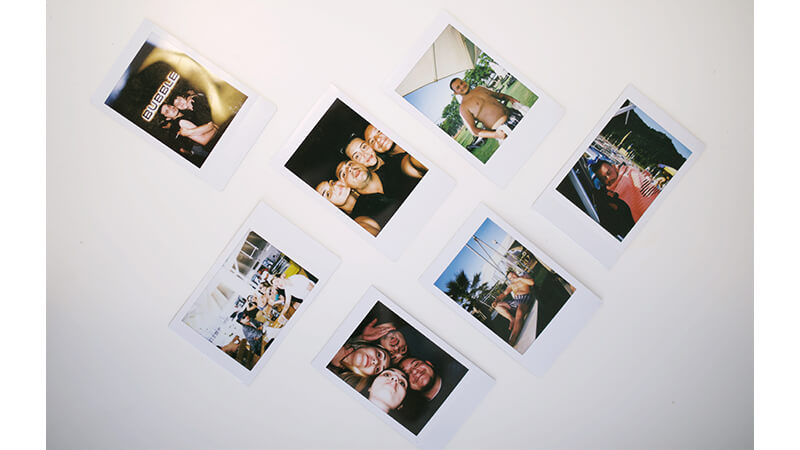
Part of what drives him on is remembering his own youth when he didn’t know where to turn for help. “It’s a lonely feeling when you’re growing up and you don’t have information,” he says. “You are all alone. No one can know, and if you share any information you will be destroyed. This was the anxiety I had – that if someone found out, I would no longer be able to live.”

Through his activism, Mustafa works to make all of Kosovo safer for LGBTQIA+ people. But he believes that begins with finding the sanctuary within. “We grow up in a society that makes us think that who we are is not safe,” he says. “There’s little space to be yourself, so I think we can grow by creating a home within ourselves and in one another, and then take that comfort to new spaces.”
In May 2022, Mustafa opened Bubble – the only queer bar in Prishtina. There, he extends the type of support he received from his mother to everyone who steps through the doors. Besides regular drag shows, the staff at Bubble fundraise to help transgender individuals access gender-affirming care.
“Bubble is a safe space created for others. It’s a place where the community can come and share love,” he says. “So if tomorrow there is no other space you find safe, at least you can come to Bubble.”
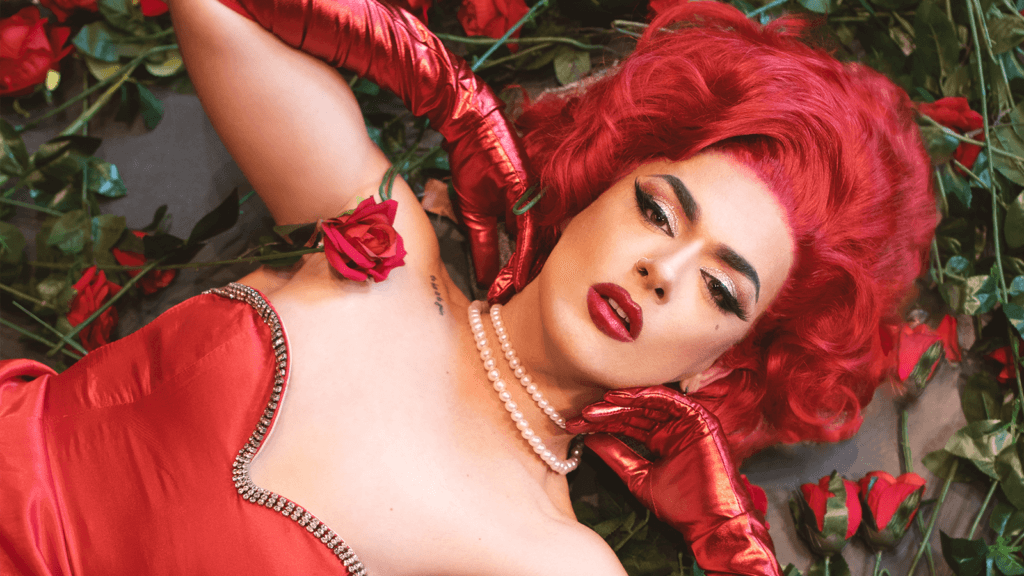
Erblin Nushi/Adelina Rose (they/them) – filmmaker & drag queen, 31
Adelina Rose first appeared on stage in 2018 at Pieces gay bar in Greenwich Village, New York. The drag persona of Erblin Nushi – who was 25 when Adelina made her debut – is now most often seen at Bubble.
Nushi, a filmmaker, never expected to be making a life in Kosovo. Though they grew up in Kosovo, they moved to the US when they were 17. Their first feature film brought them back a couple of years ago. The result, I Love You More (premiering later this year), takes queer identity in Kosovo as a jumping-off point to talk about familial love.
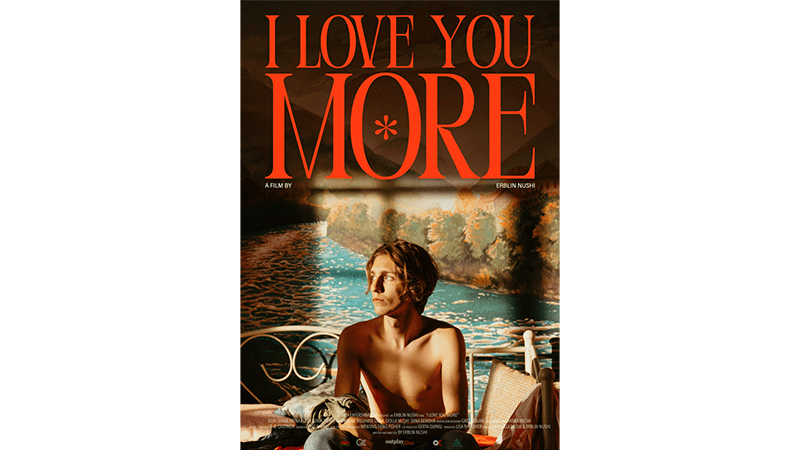
“The film is not really about the struggles of being gay in Kosovo,” Nushi says. “I wanted the message to be about love between a child and a mother because unfortunately, not a lot of people have that here.” In Nushi’s experience, many queer people in Kosovo don’t receive that love.
While creating the film, Nushi became enthralled with the momentum in the queer movement and decided to stay on to be part of the change. “Coming back, Kosovo has moved so far ahead; people in the community are doing multiple things in different areas,” they say. “I wanted to contribute with my art, drag and film.”
An ongoing fight is over same-sex unions. “The system doesn’t allow us to do what any heterosexual family could do,” they say. Nushi has their sights set on helping the movement to gain full social and legal equality.
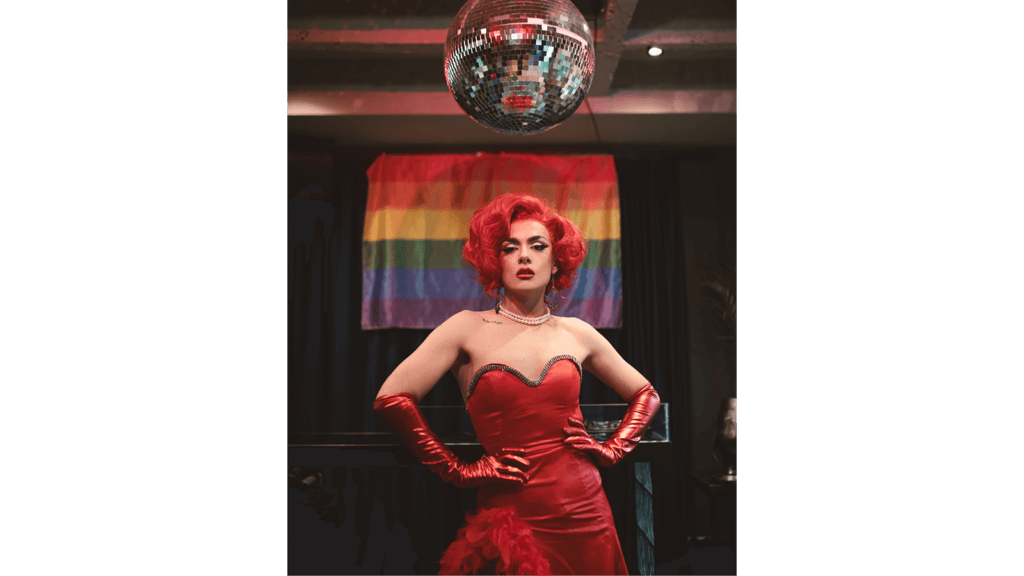
Nushi’s drag persona Adelina Rose is a key part of their activism. The name Adelina comes from the Grande Dame of Kosovo’s pop scene, Adelina Ismaili, who is beloved by the queer community for her vocal support. And Rose is a nod to the flower bushes of Peja, the city where Nushi grew up.
Their outfits also tell a story. Adelina’s favourite red-laced corset dress was first worn 19 years ago by their sister to prom. “I was mesmerised when she wore it, and I always dreamed of getting into that dress,” they say. It is just one of many dresses made by Nushi’s seamstress mother. “She would sometimes make me try things for her, like I was her mannequin.”
Adelina Rose performs frequently at Bubble, a space that reminds them of their childhood bedroom, where it all started. “That was my safe space, because in my room it was always like I was in a different world,” Nushi says. “Fast forward all these years, that safe space has become Bubble. Everything I’ve done in my room, I’m doing now here, just with an audience. I used to do it in front of a mirror, now in front of 200 people.”
Besa Luci is a Prishtina-based journalist. She is co-founder and editor-in-chief of Kosovo 2.0 magazine

